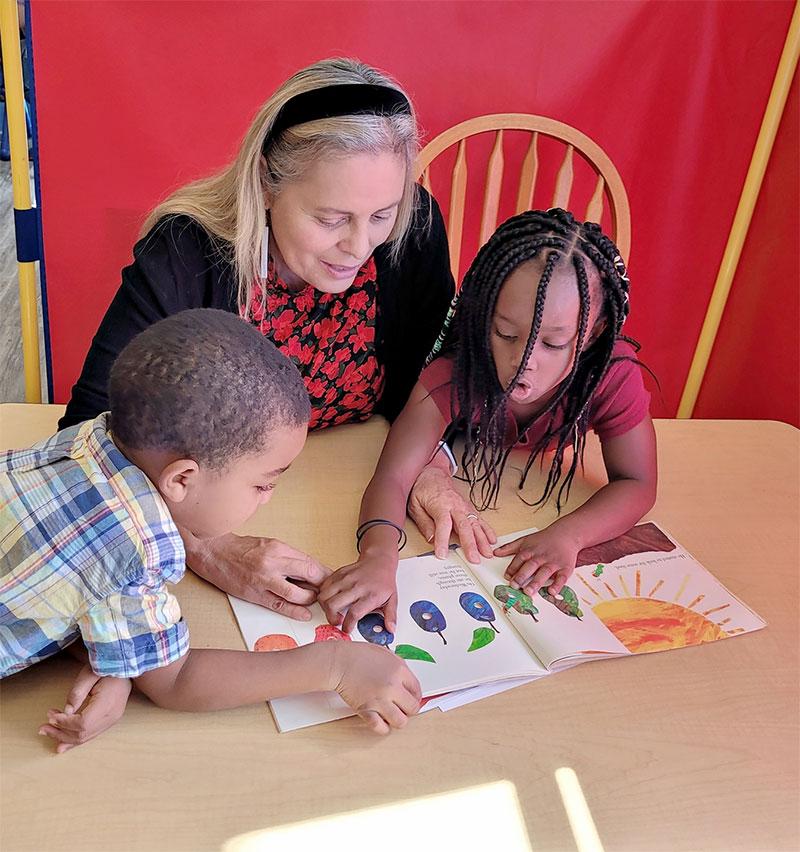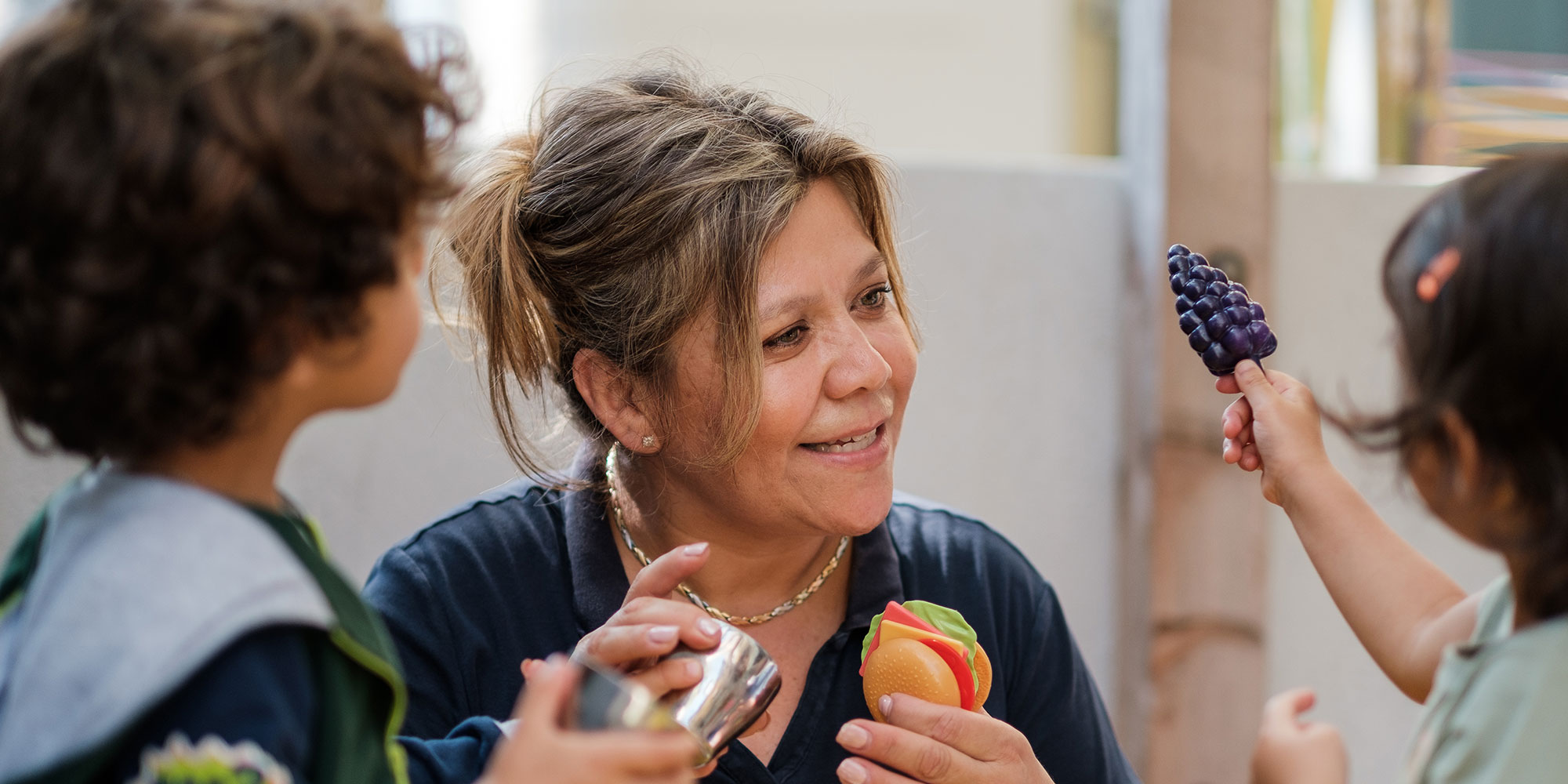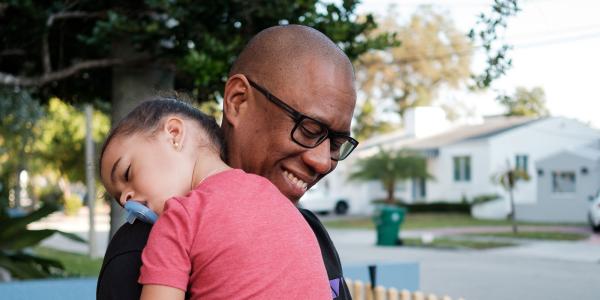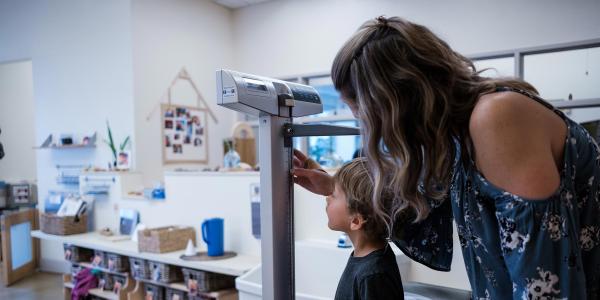
Why it Matters
The basic architecture of the human brain is constructed through an ongoing process that begins before birth and continues into adulthood. When you are building a house, you go step by step, beginning with a strong foundation. Just like a house, a strong foundation in children’s early years increases the probability of positive outcomes. A weak foundation increases the odds of later difficulties.
Since we understand this brain science, we know that the early years are pivotal for setting children up for future success. It is better to get it right when children are young than to try to repair a weak foundation later in life.
The Children’s Movement of Florida advocates for state funds to be invested in early learning initiatives that help lay a strong foundation for children so that their brains can develop seamlessly.
And the science is behind us. Expanding early learning initiatives would provide benefits to society of roughly $8.60 for every $1 spent, about half of which comes from increased earnings for children when they grow up, according to a recent analysis by the President’s Council of Economic Advisers.
Our Principles for Early Learning in Florida
1. Learning begins at birth
Early learning does not start when a child enters Pre-K. We know that children learn from the moment they are born.
There are so many important milestones a child needs to reach before they are ready to learn the alphabet or count to ten. We want to acknowledge that learning starts at birth by providing programs that support early learning for families with young children.
The Children’s Movement of Florida is advocating for early learning programs to be viewed as a key part of the education continuum, with clear ownership to ensure quality programs, appropriate funding, and child outcomes.
2. Hold state-funded programs to age-appropriate standards
Children’s ability to focus and pay attention, called executive function, is like Air Traffic Control at a busy airport. Some planes have to land and others have to take off at the same time, but there’s only so much room on the ground and in the air. Executive function regulates the flow of information and the focus of tasks, creates mental priorities and avoids collisions, and keeps the system flexible and on time.
We need to acknowledge that children’s executive function skills are still gearing up when they are in Pre-K, and that we need to assess our Florida Pre-K students based on standards that are appropriate for their age.
The Children’s Movement of Florida is advocating to adopt and implement the VPK assessment recommendations from the Committee on Early Grade Success, relating to learning gains and teacher-child interactions.
3. Celebrate and support educators
Early learning educators are integral to the development of the next generation. Science tells us that the most important way young children learn is through a strong bond with their caregivers. When parents have to work, early learning educators help with this important job.
When our early learning educators are stressed, struggling to pay their families’ bills, and worrying about being able to feed their families, they can’t bring everything our children need to school. We need to put our teachers first to put our children first.
The Children’s Movement of Florida is advocating to provide additional compensation for teachers who advance their credentials, including funding for Early Childhood Educator INCENTIVE$ statewide.
4. Keep high-quality programs affordable for parents
Floridians voted for Voluntary Pre-K (VPK) to be free for all four-year-olds in 2002. VPK today enrolls more than 160,000 Florida four year olds. But many programs are still not high quality.
Florida ranks 42nd out of 50 states in pupil funding, but has the highest levels of 4-year-olds enrolled in public Pre-K programs in the nation. Florida allocates roughly half the national average of per-pupil funding to Pre-K programs.
If we want high-quality Pre-K, it takes an investment. And that requires an understanding of how to measure quality.
We know teacher-child interactions are the best indicator of student success and a marker of a high-quality early learning environment. So we believe measuring teacher-child interactions is the most effective way to promote high-quality instruction.
The Children’s Movement of Florida is advocating to adequately fund Florida’s VPK and School Readiness programs so that high-quality early learning is affordable for Florida families.
5. Prepare all children for kindergarten
Nearly 50% of pre-k children are deemed ‘not ready’ for kindergarten when they leave pre-k.
This kindergarten readiness number reflects the results of an assessment given during the first month of the school year to all kindergarten students attending public school in Florida. This number gives policymakers, superintendents and the public a sense of whether or not we are making a sufficient investment in early learning and family supports before children enter kindergarten.
So what does it mean to be ready for kindergarten? For our five year olds, social-emotional and executive function skills are far more important than mastering letters, numbers and shapes. Children who are “ready” can listen, wait their turn, communicate, and cooperate. They can hold a pencil and focus on a task. They have a foundation for critical thinking, curiosity and an eagerness to learn. And they have reached their early literacy milestones.
The Children’s Movement of Florida advocates for the strengthening of VPK standards that will lead to real quality, value positive teacher-child interactions and social-emotional growth, as well as early literacy development.
We also want to minimize learning loss by ensuring pandemic recovery funds for child care are allocated equitably and targeted to the needs of families across the state.
Florida programs we support that contribute to early learning:
Sources
To view tips, studies, statistics and resources we cite, please visit our Sources page.


